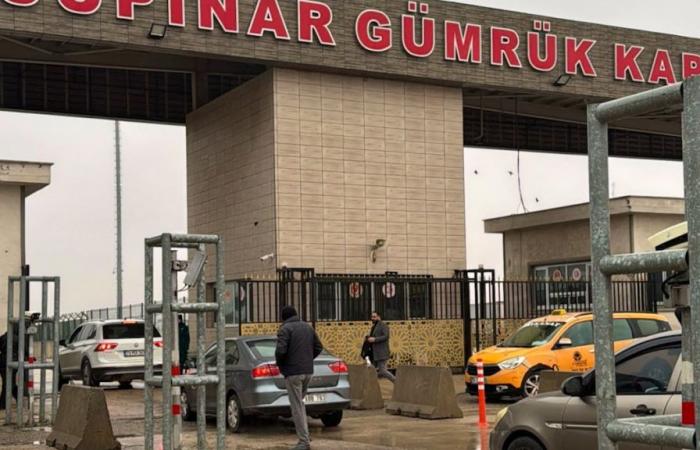Gigantic piles of bags of clothes, endless lines of cars, horns, screams, tears, but also joy. Since the fall of Bashar al-Assad on December 8, more than 25,000 Syrians have crossed the border from Turkey alone. The hope of returning to a country they had fled to escape the dictatorship, of finding their loved ones and of bringing justice to the prisoners of the old regime. But the journey can be long and tedious. “20 minutes” has experienced this in recent days, all things considered.
In Türkiye, customs in Kilis, near Gaziantep, and in Hatay province are overwhelmed. Taxis and buses parade to bring entire families, with the few possessions they own, to the border, and only on foot. Once they arrive, weighed down with bags sometimes bigger than themselves, it is up to the Turks to decide who is able to leave the country. Remember that in northern Syria, tensions oppose pro-Turkish fighters and the Syrian Democratic Forces (Kurds). Turkey explains that it is responsible for the security of people who cross its border to go to Syria.
In principle, only Syrians have the right to leave Turkish soil, but only with a definitive departure. On the other hand, if a person has another nationality, he or she does not have the right to pass. “20 minutes” therefore suffered a complete failure while trying to pass through the various Turkish customs. The choice then fell on the Lebanese-Syrian border.
In Lebanon, near Beirut, the Masnaa post also receives a large number of Syrian refugees returning to the country. Here, cars are allowed to pass, as are non-Syrian passports. No visa or other formality is required by the new government in Syria. On the other hand, this “ease” of access brings an even bigger crowd than in Türkiye. If the Lebanese authorities do not hesitate to let people pass, they are underwater, exhausted. Where another nationality is disqualifying in Türkiye, here it allows you to cut the queues. In the offices, hundreds of people crowd together, waving their passports and screaming. Cars pile up, even against the flow of traffic, to take a few more people on board. Some decide to leave on foot (Damascus is 1 hour away by car), others wait for someone to decide to take them, if they can afford to pay a driver.
Everyone, on the other hand, feels a form of excitement, mixed with anxiety. Their country is just a few meters away, ready to welcome them back. Some have not heard from their families for almost 15 years. The wait is difficult, but once all the stations have been passed, only one emotion persists: joy.






